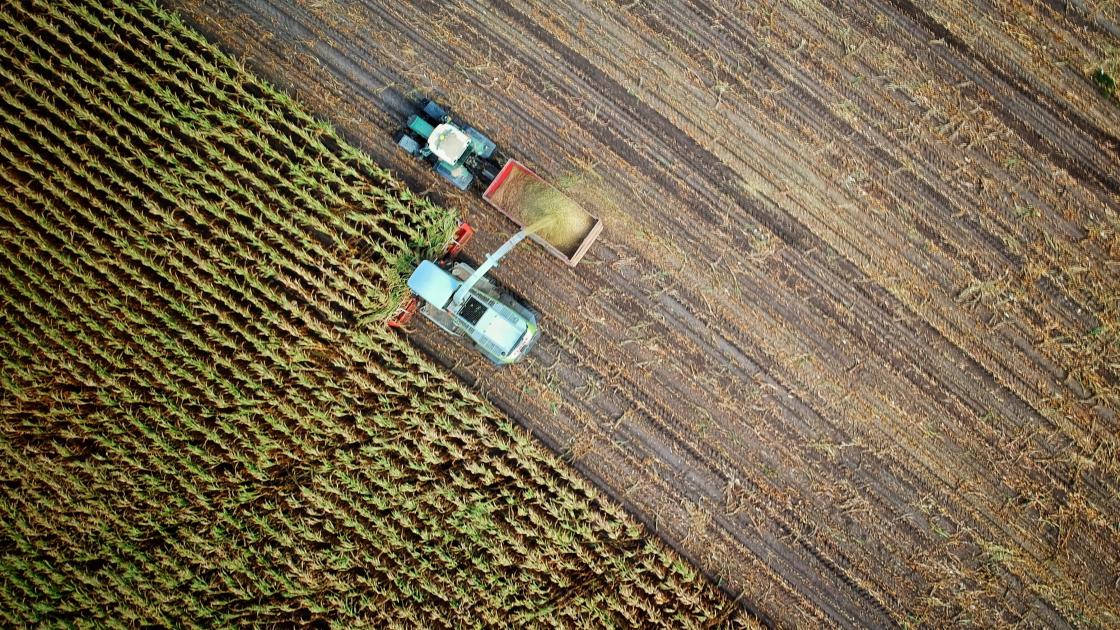
Get involved in agricultural safety
For farmers, ranchers and other agricultural workers, safety is a top priority all throughout the year. But by designating this time in March as Agricultural Safety Awareness Program Week, farming communities throughout the United States have a unique opportunity to reinforce their safety habits and learn new ways to stay safe in agriculture, forestry and fishing.
In this article, we're rounding up important farm safety tips from themes that have been covered in prior years during Agricultural Safety Awareness Program Week. Read on for some inspiration on how you can "Prepare. Prevent. Protect" in an effort to #KeepFarmsSafe. Be sure to check out the Ag Centers' YouTube channel for more great safety content.
Disaster preparedness
By definition, disaster and emergency situations usually come on suddenly and with little or no warning. They can include fires, severe thunderstorms, hurricanes, tornados, floods, stampedes, extreme heat, building or structure collapses, catastrophic equipment failures, accidents and personal injuries. Taking simple yet actionable steps now to prepare for an emergency can literally save lives.
For your farm, disaster preparedness may include:
- Creating an Emergency Action Plan (EAP) that outlines an orderly evacuation plan, and ensuring your employees and family members understand their roles, responsibilities and "to-do's" in the event of an emergency situation
- Having detailed maps and navigational instructions about your farm to help first responders and emergency medical services act quickly
- Restocking your farming first aid kits
- Ensuring you have the correct type of fire extinguishers on your farm
- Regularly inspecting equipment, and repairing or replacing equipment as necessary
Remember, kids as young as 3 have successfully called 911 for a family member in distress. Be sure to teach your children when and how to call for help!
Livestock safety
Whether you have cattle, pigs, horses, sheep or other animals, it's important to remember that livestock aren't pets. Giving these animals a secure, stress-free environment keeps them and you safe.
Here are some basic livestock safety tips to remember:
- Never approach livestock from the rear or in a way that startles them.
- When working with livestock in close quarters, always be aware of your surroundings and have a clear "out."
- Ensure visitors are aware of and respect your livestock safety rules, including washing hands and staying out of any prohibited areas.
- Ensure all employees, family members and livestock exhibitors are well-trained on proper animal handling techniques.
Roadway safety
Farmers and ranchers are important community stakeholders, and all of us share the responsibility to keep everyone safe on the road. These road safety tips are essential for motorists of all types:
- Don't speed, don't drive drunk, don't drive distracted and please—put your phone away!
- Make it easy for other motorists to see you and your equipment with things like slow moving vehicle signs, flashers and reflective tape.
- Give tractors and other farm vehicles plenty of room—they often make wide turns, drive slow or carry heavy loads.
- While driving in your community, be extra alert during planting and harvesting season when farming activity is highest.
- Be aware of areas where livestock may be at large, and always close gates and fences behind you.
Hearing safety
Chronic hearing loss is common among farmers and agricultural workers. Many people don't realize that hearing loss caused by loud noises from things like farming equipment and firearms is permanent—but it's also preventable!
Show your employees and family members that you care about hearing safety on your farm:
- Be aware of situations that may be harmful to hearing. If you have to raise your voice in order for someone to hear you, it's too loud!
- Require all farm workers to use ear muffs, fitted ear plugs and other types of personal protective equipment as appropriate.
- Be diligent about routine maintenance of equipment, as this can reduce extraneous noise.
- Minimize your exposure to loud noises as much as possible.
- Warn others via signs or other alerts about high noise areas.
Is there a farm safety topic you'd like to learn more about?
The Farm Family Resource Initiative (FFRI) is an innovative program spearheaded by the Southern Illinois University School of Medicine Center for Rural Health and Social Service Development (CRHSSD). We take the health and safety of our rural and agricultural neighbors seriously, and are proud to connect local farming families with resources that support their physical, financial and mental well-being.
Call or text the FFRI helpline now at 1-833-FARM-SOS (833-327-6767) to learn more about the services available to you.
Karen Leavitt Stallman
Ag Resource Specialist



